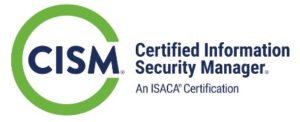
Master the CISM Exam: Proven Tips and Essential Resources

Introduction
The Certified Information Security Manager (CISM) certification, administered by the Information Systems Audit and Control Association (ISACA), holds a prestigious position in the realm of information security management. ISACA, a prominent global organization dedicated to information systems governance, security, and audit, upholds stringent standards for CISM certification. Tailored for professionals specializing in managing, overseeing, and securing an organization’s information technology and business systems, CISM validates individuals’ proficiency and expertise across various domains. CISM certification assesses competencies in critical areas, including information security governance, risk management, information security program development and management, and information security incident management. It signifies mastery in establishing and maintaining robust information security frameworks, implementing effective risk management strategies, developing and managing information security programs aligned with organizational objectives, and orchestrating swift responses to security incidents.

If you’re keen on enhancing your expertise in information security manager. In that case, we cordially invite you to explore “CISM Fast Track: Master CISM Essentials for Exam Success“ by VERSAtile Reads. Within the pages of this book, you will discover invaluable insights that can illuminate your path toward success in the realm of cybersecurity auditing and control.
Role of Information Security Manager
The Information Security Manager holds a pivotal position within modern organizations, tasked with the safeguarding of sensitive information in an increasingly digitized world. Their role encompasses multifaceted responsibilities, starting with the establishment and enforcement of robust security policies and procedures. They meticulously assess risks to the organization’s data, identifying vulnerabilities and implementing strategies to mitigate potential threats. Additionally, they champion a culture of security awareness and conduct comprehensive training programs to empower employees with the knowledge needed to defend against cyber threats. When incidents occur, these managers spearhead swift and effective responses, coordinating efforts to contain breaches and restore normalcy. They oversee the deployment of sophisticated monitoring tools to detect and thwart security breaches in real-time, all while ensuring compliance with regulatory standards and industry best practices.
Moreover, they contribute to the strategic design of secure IT architectures, integrating security considerations throughout the development lifecycle. Lastly, they manage the risks posed by third-party vendors, conducting thorough assessments and establishing stringent security requirements. In essence, Information Security Managers serve as the frontline defenders of an organization’s digital assets, tirelessly working to maintain the integrity, confidentiality, and availability of information in the face of evolving cyber threats.
Why is Certification necessary for Information Security Managers?
Certification is crucial for Information Security Managers for several reasons:
- Validation of Skills and Knowledge: Certification programs provide a standardized way to validate the skills and knowledge of Information Security Managers. By obtaining certifications, professionals demonstrate their proficiency in various areas of information security, including risk management, security architecture, incident response, and compliance.
- Industry Recognition: Many certifications are recognized and respected within the information security industry. Holding certification can enhance an Information Security Manager’s credibility and reputation among peers, employers, and clients.
- Career Advancement: Certifications can open up opportunities for career advancement and progression. Employers often look for candidates with relevant certifications when hiring for leadership roles in information security. Additionally, certifications may be required for certain positions or promotions within an organization.
- Keeping Pace with Technology and Best Practices: The field of information security is constantly evolving, with new threats, technologies, and best practices emerging regularly. Certification programs often include ongoing education requirements or recertification exams, ensuring that Information Security Managers stay current with the latest developments in the field.
- Meeting Regulatory Requirements: In some industries, regulatory standards mandate that organizations employ certified professionals in key security roles. For example, the Payment Card Industry Data Security Standard (PCI DSS) requires organizations handling payment card data to have certified professionals involved in their security programs.
- Professional Development and Networking: Pursuing certification typically involves studying relevant materials, attending training courses, and engaging with a community of fellow professionals. This process not only enhances knowledge but also provides opportunities for networking and collaboration with peers in the field.
What Is The Course All About?
The Certified Information Security Manager (CISM) certification, offered by ISACA, equips information security managers with the expertise to develop and manage enterprise-level security programs. The course covers four domains: Information Security Governance, Information Risk Management, Information Security Program Development and Management, and Information Security Incident Management. Through this certification, professionals gain essential skills in aligning security strategies with organizational goals, managing risks effectively, developing robust security programs, and orchestrating incident response efforts. CISM certification is highly regarded in the industry and validates the competence of information security managers to safeguard organizations against evolving cyber threats.
Intended Audience
The intended audience for the Certified Information Security Manager (CISM) certification falls primarily within the realm of information security (infosec) management. Here’s a breakdown of the target groups:
-
Security Leaders and Managers:
- This is the core audience for CISM. It encompasses individuals who oversee and manage information security programs within organizations. Some specific roles include:
-
- Chief Information Security Officers (CISOs)
- Information Security Managers
- Security Directors
- Security Risk Managers
- IT Security Consultants
-
Professionals Transitioning to Security Management:
- CISM is valuable for experienced IT security professionals seeking to advance their careers into leadership positions. It validates their technical knowledge and demonstrates their understanding of security program development, governance, and risk management.
-
Security Auditors and Architects:
- While not the primary target group, security auditors and architects can benefit from the CISM certification. It broadens their understanding of information security beyond technical controls and delves into the strategic aspects of managing an information security program.
Anyone who wishes to become a Certified Information Security Manager (CISM) should follow this certification course. You can also check out our latest exam cram essentials on CISM Certification to revise your concept before appearing for an exam.
Prerequisites Of The Certifications
To pursue the Certified Information Security Manager (CISM) certification, candidates should meet certain prerequisites set by ISACA. The prerequisites include:
- Work Experience: A minimum of five years of experience in information security management, with at least three years of experience in three or more of the four domains of the CISM certification job practice areas. This experience must be gained within the ten years preceding the application date or within five years of passing the CISM exam.
- Adherence to ISACA’s Code of Professional Ethics: Candidates must agree to adhere to ISACA’s Code of Professional Ethics, which outlines ethical standards and responsibilities for information security professionals.
- Agree to the CISM Continuing Education Policy: Once certified, CISM holders must adhere to ISACA’s Continuing Professional Education (CPE) policy, which requires ongoing professional development to maintain the certification.
Demand for CISM Professionals on the Rise
The demand for Certified Information Security Manager (CISM) professionals is witnessing a significant surge due to various interrelated factors. Primarily, the escalating frequency and sophistication of cyber threats have propelled organizations to prioritize robust information security measures. In response to stringent regulatory compliance requirements and the escalating concerns surrounding data breaches, organizations are increasingly seeking CISM-certified professionals to orchestrate comprehensive security programs aligned with industry standards. Moreover, the ongoing digital transformation initiatives across sectors have expanded the attack surface for cyber threats, necessitating skilled professionals to safeguard digital assets effectively. Compounded by a global shortage of cybersecurity talent, the CISM certification has emerged as a benchmark of expertise in information security management, making certified professionals highly sought after in the job market.
Additionally, with information security becoming a focal point at the board level, CISM professionals are in demand for their ability to articulate security risks and strategies to executive leadership effectively. As the landscape of cyber threats continues to evolve, the demand for CISM professionals is expected to persist, driving organizations to invest in experienced leaders capable of navigating the complexities of information security challenges.
Understanding the CISM Exam
Before diving into preparation, it’s crucial to understand the structure and content of the CISM exam. The exam consists of the following five domains:
- Information Security Governance
- Information Security Risk Management
- Information Security Program Management
- Information Security Management
- Information Security Life Cycle
The ISACA CISM Certification Process
The process of obtaining the Certified Information Security Manager (CISM) certification involves several steps to ensure candidates meet the requirements and maintain professional standards in the field of information security management. Here’s a detailed guideline for achieving the CISM certification:
There are four phases or steps to becoming a certified CISM practitioner.
- Meet the experience requirements.
- Pass the exam
- Get an endorsement
- Prepare for an audit
Step 1: Meet The Experience Requirements
- To qualify for the CISM certification exam, candidates must demonstrate a minimum of five years of professional work experience in information security management, with at least three years of experience in three or more of the four domains of the CISM job practice areas.
- This experience should be acquired within the ten years preceding the application date. Alternatively, candidates may substitute a maximum of two years of experience with certain educational achievements or recognized certifications, such as a bachelor’s degree in information security management or related fields.
Step 2: Pass The Exam
- Once candidates meet the experience requirements, they can register for the CISM certification exam administered by ISACA. The exam covers four domains related to information security management: Information Security Governance, Information Risk Management, Information Security Program Development and Management, and Information Security Incident Management.
- Candidates must thoroughly prepare for the exam, which consists of multiple-choice questions testing their knowledge across these domains.
Step 3: Obtain An Endorsement
After passing the CISM exam, candidates must obtain an endorsement from an active CISM-certified professional who can validate their industry experience and knowledge in information security management. The endorser will sign an endorsement form on behalf of the candidate, confirming their qualifications and expertise in the field. This endorsement is then submitted to ISACA for review and approval.
Step 4: Prepare For An Audit
- ISACA may randomly select CISM certified individuals for audit to ensure the integrity of the certification process.
- Selected for audit, candidates must provide documentation to verify their qualifications and experience in information security management.
- Candidates must ensure the accuracy and honesty of their application materials to avoid any issues during the audit process. Upholding the highest ethical standards is essential throughout the certification process.
Certification Expiry
The Certified Information Security Manager (CISM) certification is valid for three years. To maintain certification, professionals must earn a minimum of 120 Continuing Professional Education (CPE) credits within the three-year cycle, with at least 20 credits earned annually. CPE activities include training, conferences, publications, and volunteering. Failure to meet CPE requirements results in certification becoming inactive.
Job Opportunities with CISM Certifications
Roles of CISM-Certified Professionals:
- Information Security Manager: As the name suggests, this role involves overseeing the security policies and procedures of an organization, managing security teams, and ensuring compliance with regulations. CISM certification is particularly relevant for this position because it demonstrates expertise in managing, designing, and assessing an enterprise’s information security program.
- Cybersecurity Consultant: Many consulting firms seek professionals with CISM certification to provide expert advice on cybersecurity strategy, risk management, and compliance. Consultants with CISM credentials can work with a range of clients across different industries to assess their security posture and recommend improvements.
- Security Architect: Security architects design and implement security systems to protect an organization’s IT infrastructure. They need to have a deep understanding of security principles and technologies, making CISM certification valuable for this role. Security architects often work closely with other IT teams to ensure that security measures are integrated seamlessly into the organization’s systems and applications.
- Security Analyst/Engineer: Security analysts and engineers are responsible for monitoring networks and systems for security breaches, investigating incidents, and implementing security solutions. CISM certification can enhance their credibility and demonstrate their ability to analyze security risks and develop appropriate mitigation strategies.
- Risk Manager: Risk managers assess and mitigate risks to an organization’s information assets. They work closely with business leaders to identify potential threats and vulnerabilities and develop strategies to manage them effectively. CISM certification provides risk managers with the necessary skills and knowledge to assess security risks and develop risk management plans.
- Compliance Officer: Compliance officers ensure that an organization complies with relevant laws, regulations, and industry standards related to information security. CISM certification demonstrates expertise in developing and implementing security policies and procedures to meet compliance requirements.
- Chief Information Security Officer (CISO): CISOs are senior executives responsible for overseeing an organization’s overall security strategy and ensuring that security initiatives align with business objectives. CISM certification is highly beneficial for aspiring CISOs as it demonstrates their ability to manage and lead a comprehensive information security program.
Demand in 2024
The demand for CISM-certified professionals is expected to remain strong in 2024.
- Rising Cybersecurity Threats: Cybercrime is a growing concern for organizations of all sizes. This necessitates skilled professionals to manage information security programs and mitigate these threats. CISM certification validates expertise in this area.
- Shortage of Cybersecurity Talent: There’s a significant gap between the demand for cybersecurity professionals and the available workforce. Earning your CISM makes you a valuable asset in this competitive job market.
- Focus on Security Management: Businesses are increasingly recognizing the importance of a strategic approach to information security. CISM focuses on security program development and governance, aligning well with this shift.
Conclusion
In conclusion, the CISM certification equips professionals with essential skills in information security management, validating their expertise across critical domains like governance and risk management.
With increasing demand for skilled leaders in cybersecurity, CISM certification offers a valuable pathway for career advancement. As organizations prioritize robust security measures, the CISM credential remains highly sought-after, making it a strategic investment for professionals seeking success in the dynamic field of cybersecurity.
FAQs
-
What is the CISM exam?
The CISM exam is a comprehensive assessment conducted by ISACA to evaluate candidates’ proficiency in information security management. It covers four key domains: Information Security Governance, Information Risk Management, Information Security Program Development and Management, and Information Security Incident Management.
-
How do you prepare for the CISM exam?
To prepare for the CISM exam, create a study plan that covers all five domains of the exam. You can visit www.versatileread.com to prepare using exam essentials.
-
What are the benefits of CISM certification?
CISM certification provides numerous benefits: career advancement, global recognition, and validation of key skills like risk management and governance. It ensures compliance with standards, offers networking opportunities, and is essential for success in information security management.
- Published Date:



